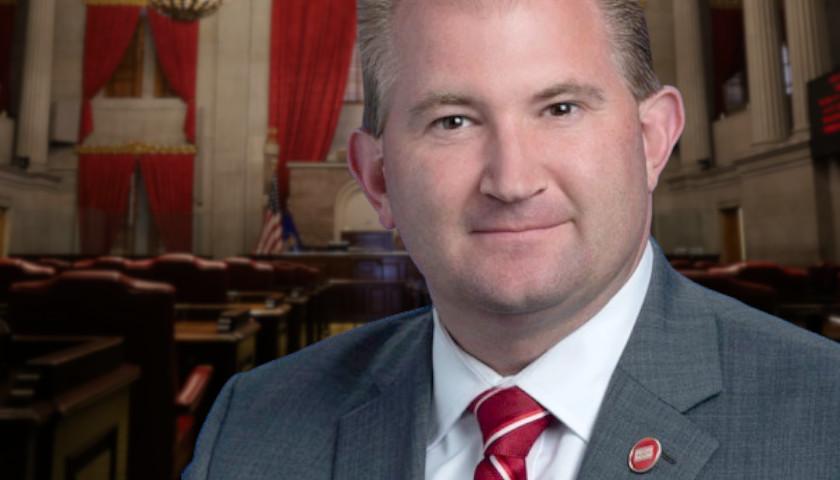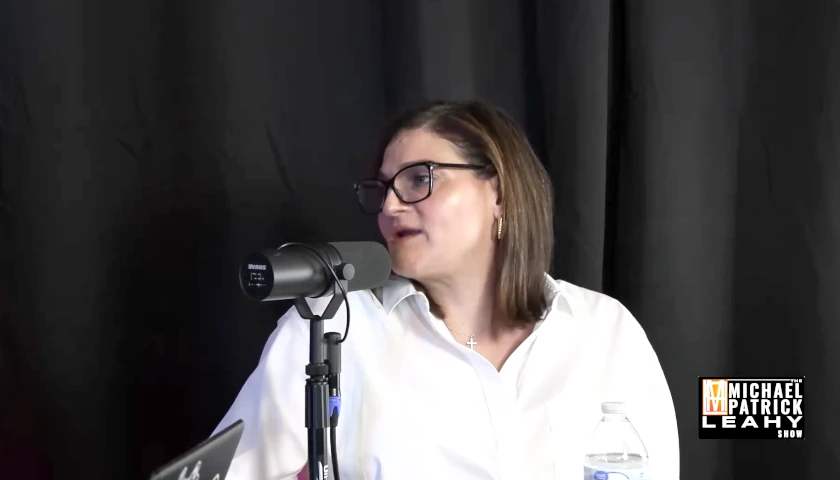Although adopted by Tennessee state lawmakers on April 9, 2014, it was not until September 10, 2019 — just this past week — that House Joint Resolution No. 548 by State Representative Dennis Powers (R-Jacksboro) was formally received by the United States Senate in Washington, D.C.
The now-five-year-old Tennessee joint resolution is one of 28 still-active such entreats approved by state legislatures across the country to petition Congress to call a convention, under Article V of the U.S. Constitution, to propose and transmit a federal constitutional amendment which — if later successfully ratified — would require that the federal government’s budget be in balance, with exceptions for war and other temporary financial emergencies.
As of September 2019, the federal government is running a deficit of more than $22 trillion. The last time that the national budget was actually balanced — and even contained surpluses — was during the late 1990s.
A convention of this type, for proposing one — or more — federal constitutional amendments, has never been called in U.S. history as there have never been a sufficient number of state legislative petitions simultaneously in force making the same, or substantially the same, request. Additionally, the process is accompanied by a lengthy list of procedural questions. And some states, like Tennessee in 2010 — House Joint Resolution No. 30 by State Representative Glen Casada (R-Franklin) — actually rescinded prior petitions for an Article V Convention.
The U.S. Constitution’s Article V declares, in relevant part, only that:
“…Congress…on the application of the legislatures of two thirds of the several states, shall call a convention for proposing amendments, which…shall be valid to all intents and purposes, as part of this Constitution, when ratified….”
Therefore, with 50 states presently in the Union, it takes petitioning resolutions from the legislatures of 34 states to trigger the calling of such a convention by Congress.
There have been times in America’s past when the state legislatures have come very close to forcing such a national convention to be summoned.
In 1912, such a move among state lawmakers came within just one petition of the requisite two-thirds, as noted in the quotation above. That was for an amendment by which voters — rather than state legislators themselves — would choose members of the U.S. Senate. That level of closeness so spooked the 62nd Congress, that both of its chambers acquiesced on previous reluctance and formally proposed the desired amendment so as to avert the numerous uncertainties of actually assembling such a convention and establishing infrastructure for its operation. The resulting quick ratification of the Constitution’s 17th Amendment in 1913 is generally thought to have rendered as moot the pending state legislative petitions demanding that an Article V Convention be called for proposing a constitutional amendment guaranteeing the direct selection of U.S. Senators by each state’s electorate.
In 1969, the country likewise lacked the petition of only one state legislature to trigger the calling of such a convention for a federal constitutional amendment which would have allowed the membership of one chamber of a bicameral state legislature to be apportioned on some basis other than strictly population — a judge-made requirement imposed by the U.S. Supreme Court in the 1964 case of Reynolds v. Sims. The death of the convention movement’s primary figure, United States Senator Everett Dirksen (R-Illinois), caused the effort to overturn the Reynolds decision — by means of a federal constitutional amendment — to fizzle out.
As of 1983, the nation was just two petitions shy of precipitating such a convention for a federal constitutional amendment for a Balanced Budget Amendment (BBA). But between 1988 and 2010, nearly half of those state legislatures (again, including Tennessee) which had petitioned for such a convention on that topic adopted subsequent resolutions to rescind those past convention requests. From 2010 to 2017, however, the endeavor once again gained momentum and, with Wisconsin’s 2017 BBA convention petition, presently stands at 28 still-pending petitions out of the necessary 34.
With this week’s tardy receipt of Powers’ 2014 H.J.R. No. 548 by the U.S. Senate — coupled with its less-belated arrival in the U.S. House of Representatives on December 1, 2015 — Tennessee’s five-year-old petition for the calling of an Article V Convention to propose a federal BBA to the U.S. Constitution, is now administratively-complete and awaits adoption of similar petitions by lawmakers in six more states in order for such a convention to be assembled by decree of Congress. Whether the legislatures of six additional states adopt convention petitions on the topic of a BBA remains speculative.
Powers’ 2014 BBA convention petition restores an equivalent 1977 petition on that subject which fell victim to Casada’s aforementioned 2010 rescission.
From the year 1788 to present, convention-requesting petitions from state legislators have numbered in the hundreds and have been on a variety of different topics, with some such petitions not even bothering to specify any particular desired amendment on any one unique subject.
– – –
With his decade of work (1982-1992) to gain the 27th Amendment’s incorporation into the U.S. Constitution, Gregory Watson of Texas is an internationally-recognized authority on the process by which the federal Constitution is amended.






Why did it take 5 years?
That question would need to be directed to Tennessee State Representative Dennis Powers (R-Jacksboro).